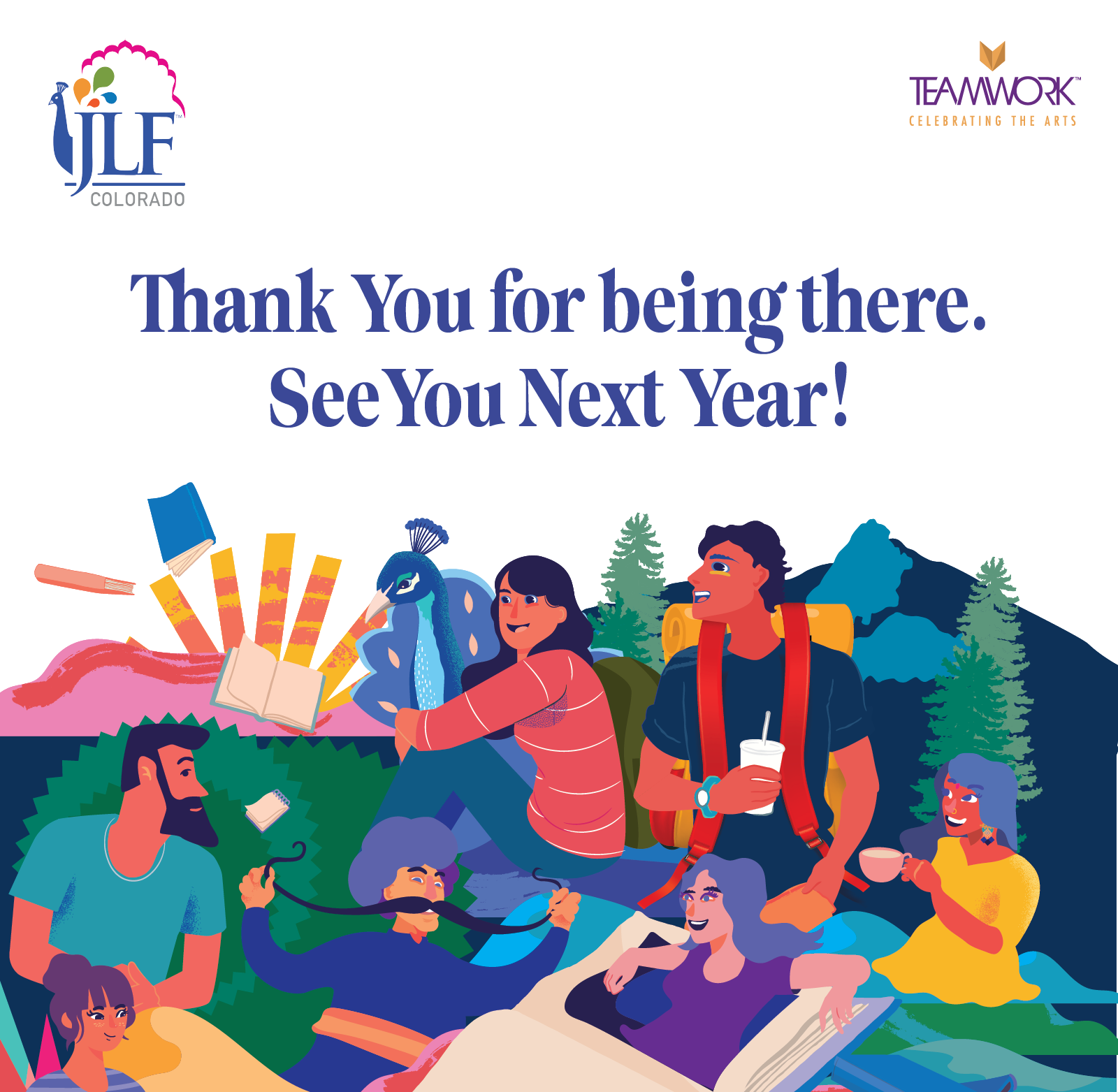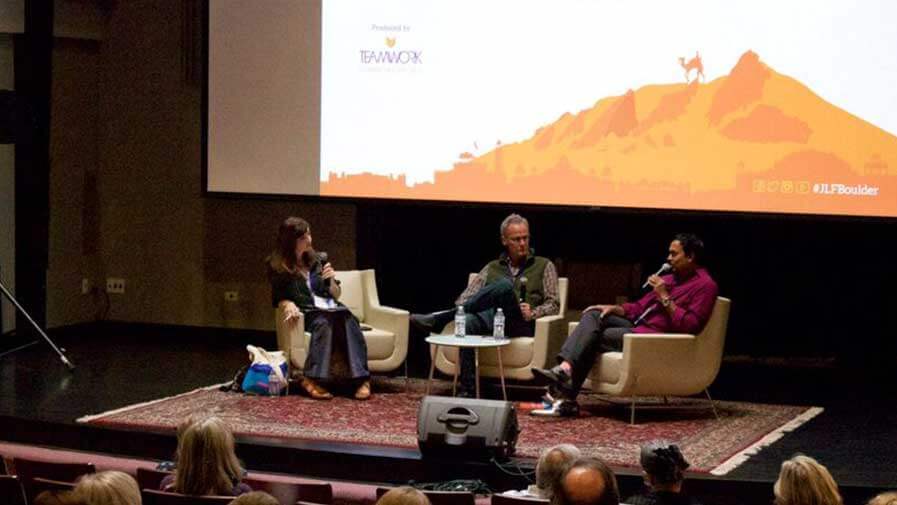


Technology: What Are We Clicking For?
By Debra Nicholson, Official Blogger for Jaipur Literature Festival/Boulder
Are we controlling technology or is technology controlling us?
Nicholas Carr, author of numerous books on the personal and cultural consequences of technology, and Gopi Kallayil, the Chief Evangelist for Brand Marketing at Google, discussed this question at the panel entitled, “Brave New World: The Digital Future,†at the Jaipur Literature Festival at Boulder. Users may think they retrieve neutral information from the Internet with their chosen search terms; yet, information retrieval is curated by tech companies to enhance their economic interests; that is, keeping users on their devices as long and as often as possible to collect data that can be used for ads and for personalizing search hits.
What’s the problem?
Users connect to their smartphones 100-200 times a day. Carr argues that users become addicted to getting little bits of information, rather than taking time to reflect, digest, and synthesize their thoughts about topics. Further, tech companies create the idea that technology is just an extension of the human brain, whereas, in his view, it is dangerous to think of human interactions in terms of efficiency and optimization rather than as opportunities for relationship-building.
Kallayil, on the other hand, argues that the Internet is just a tool to enhance daily lives, with all the world’s information just a click away, and all the apps that act like personal assistants. It’s up to the consumer to use technology in ways that add to, and don’t detract from, everyday lived experience. Just like fire, which contains properties that can be used for both good and ill, consumers have the power to decide how to use technology.
Democratizing Information Access
The Internet’s initial impetus was to democratize access to the world’s information for everyone. For the first time ever, the number of cell phones outnumber the world’s population. However, the tool meant to empower has not always created equal opportunity. Internet access remains unavailable for millions of people; they are falling behind, in what was hoped to be brought about by technology: the “global village.â€
It’s Too Late to Turn Back
Technology is here to stay; we can’t go back. But we can be more aware of how we use technology as well as understanding the many ways technology uses us, and to remember that the empowerment promised by technology is often a gift for the already privileged.
©Debra Nicholson 2016



Leave a comment